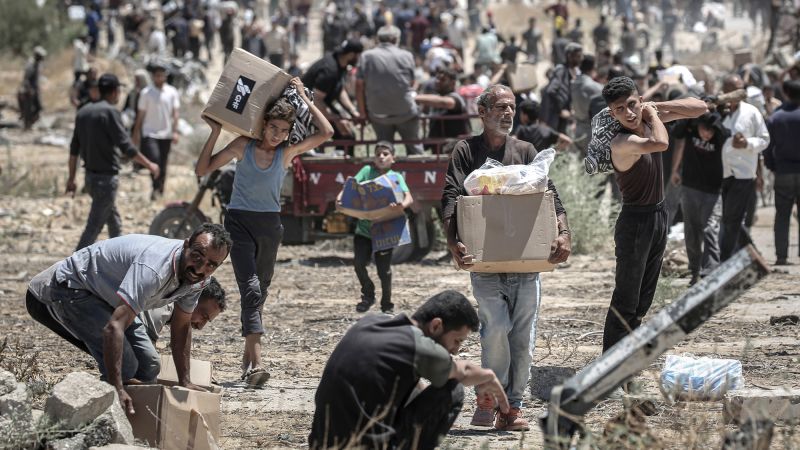The US- and Israel-backed Gaza Humanitarian Foundation (GHF) has announced the end of its aid operations in the Gaza Strip, following months of controversy, criticism from international agencies and deadly incidents involving Palestinians seeking food.
GHF, which operated for nearly six months, had already suspended its three food distribution points after the ceasefire between Hamas and Israel took effect six weeks ago. The organisation sought to bypass the United Nations as the main supplier of aid to Gaza, arguing that its alternative model would prevent diversion of supplies. However, UN agencies and global humanitarian partners rejected the approach, calling it unethical, unsafe and in violation of humanitarian principles.
The shutdown comes after the UN reported that hundreds of Palestinians were killed near GHF distribution sites, mostly by Israeli gunfire during chaotic scenes as desperate families searched for food. According to the UN Human Rights Office, at least 859 Palestinians were killed near GHF sites between 26 May and 31 July, while another 514 died near routes used by UN and other aid convoys. Israel maintains its troops fired only warning shots and acted against perceived threats.
GHF denies any shootings occurred near its facilities and accuses the UN of relying on “misleading” statistics.
In its closing statement, GHF said it had completed its “emergency mission”, delivering three million aid packages—equivalent to 187 million meals. Executive director Jon Acree also revealed that the US-led Civil-Military Coordination Centre (CMCC), created to support President Donald Trump’s Gaza peace plan, would adopt and expand GHF’s model.
The announcement drew mixed reactions. The US State Department credited GHF’s model with pressuring Hamas toward accepting a ceasefire. Hamas, which denies stealing aid, celebrated the closure and demanded accountability for the deaths and injuries recorded near the sites.
UN spokesperson Stéphane Dujarric noted the shutdown would have “no impact” on UN operations, emphasising that agencies never partnered with GHF. Despite a rise in aid deliveries since the ceasefire, he warned that assistance remains insufficient for Gaza’s 2.1 million residents.
As Gaza continues to face severe humanitarian needs, the debate over GHF’s legacy and the safety and neutrality of aid delivery remains far from over.

